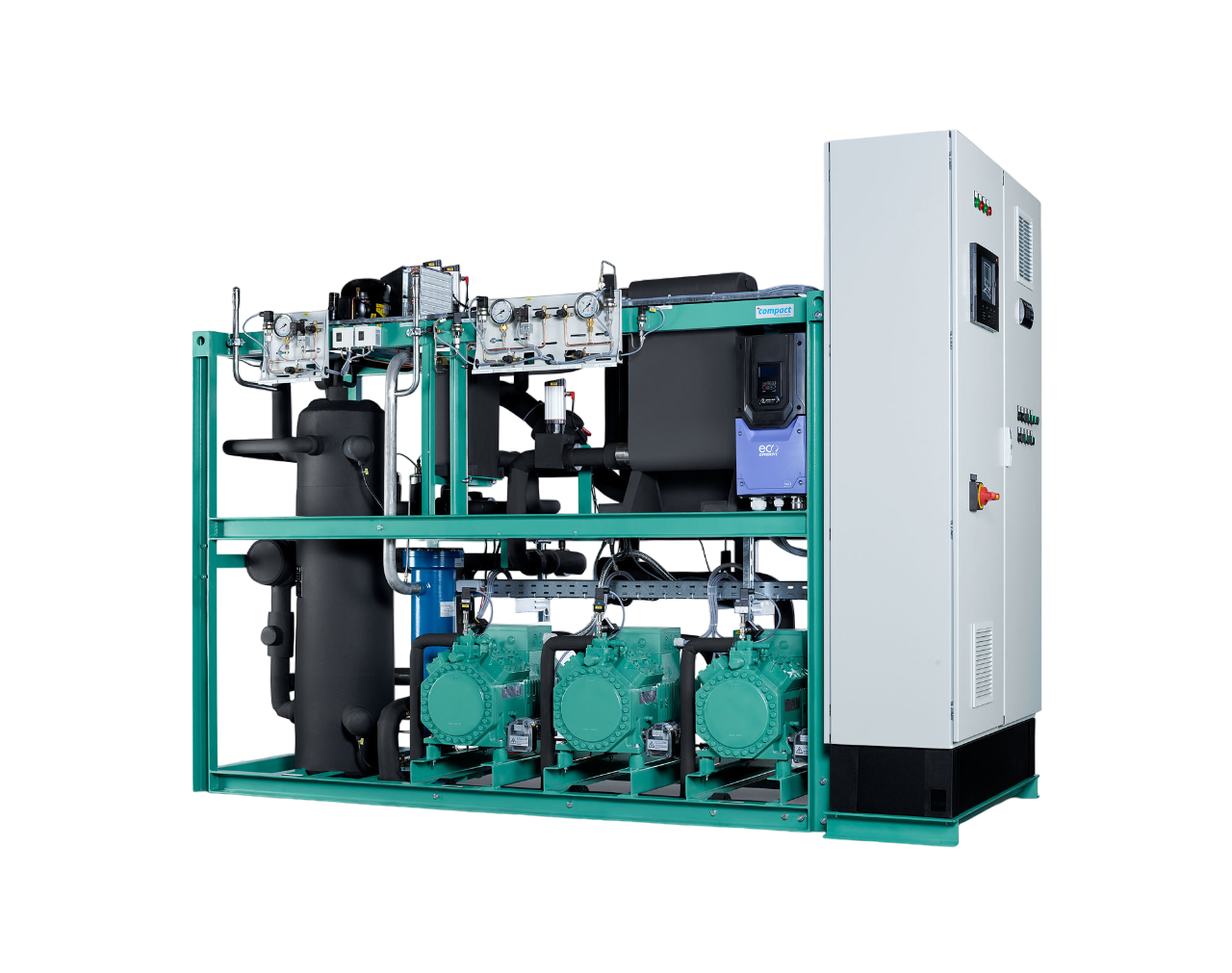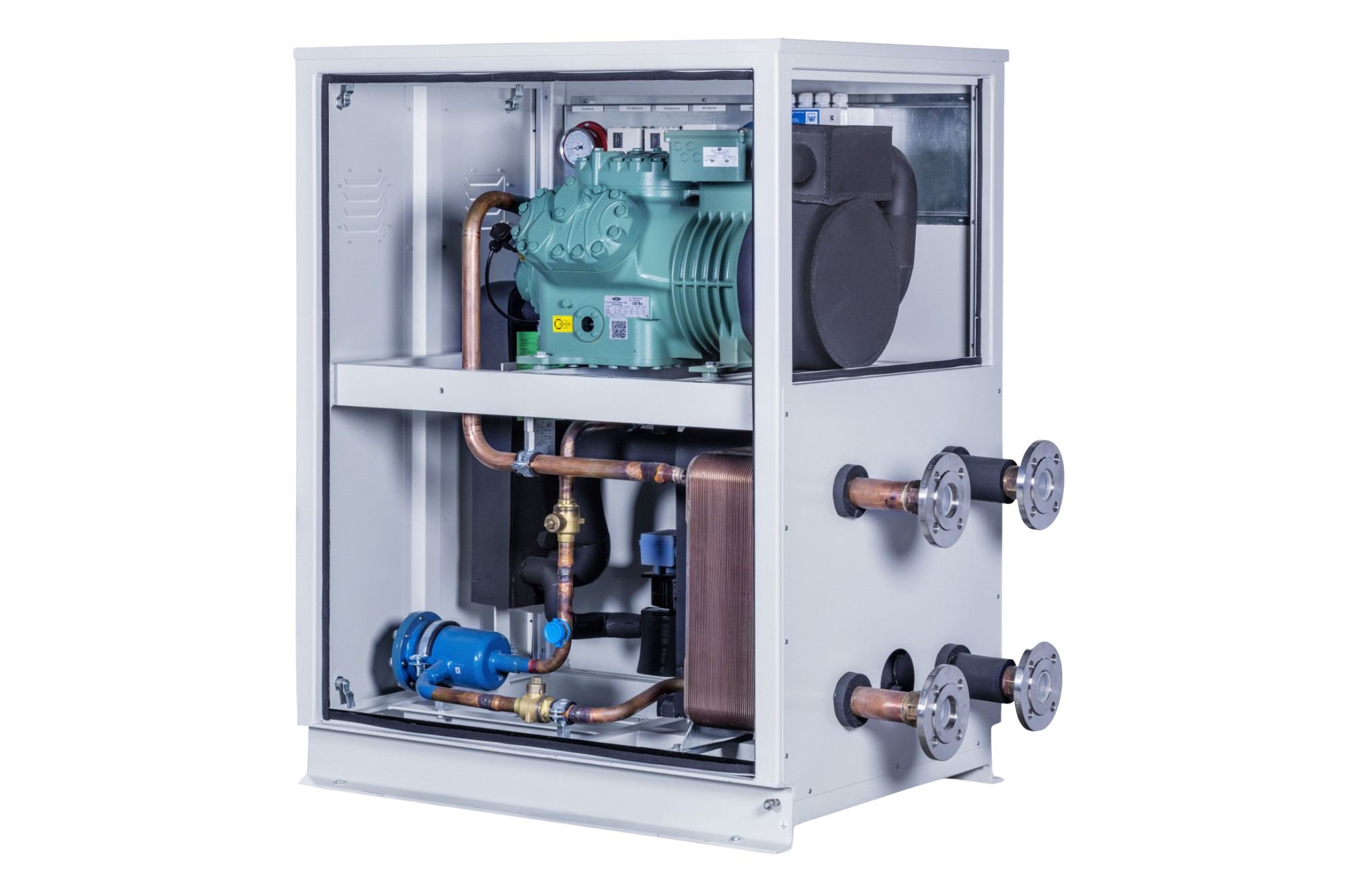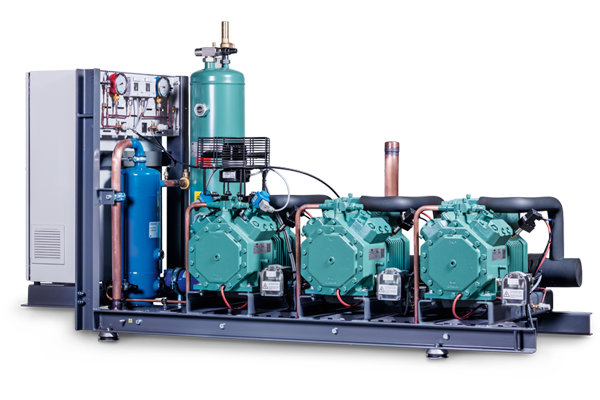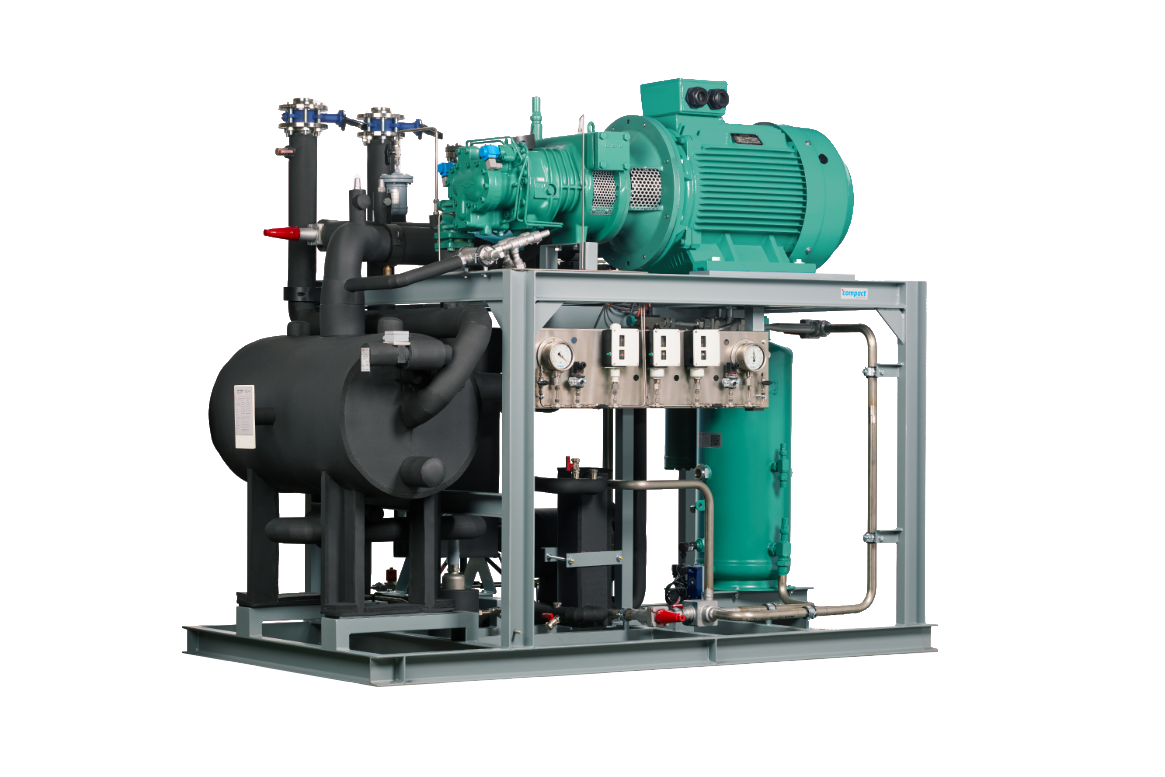We’re working on the future, of course.
Our role as one of the leading manufacturers of refrigeration units and systems has prompted us to focus increasingly on the development of forward-looking and sustainable refrigeration solutions. With a focus on efficiency and environmental compatibility, we use various refrigerants such as CO2, FKW/HFKW, propane, and ammonia in both our standard series and special systems.
Our flexible and versatile systems, which are based on proven basic concepts, offer a high level of efficiency and often serve as an economical and time-saving alternative to customised systems. Another advantage of our systems is the short delivery time, which ensures fast and reliable implementation of your projects.
Discover the benefits of sustainable cooling solutions with compact Kältetechnik.
CO2 Refrigeration Systems
Discover our environmentally friendly refrigeration systems with the refrigerant CO2 (R744, carbon dioxide), with a GWP value of 1. By using a CO2 refrigeration system, you are opting for a long-term and efficient solution for many cooling requirements. No standards or laws prohibit the use of the natural refrigerant CO2.

R290 Refrigeration Systems
Due to its excellent thermodynamic properties, propane offers high energy efficiency potential. Propane is a hydrocarbon and a natural, long-term refrigerant with a GWP value of 3. Thanks to its low final compression temperatures, it retains its performance even at high outside temperatures.


FKW/HFKW Refrigeration Systems
Discover our comprehensive FKW/HFKW refrigeration solutions, which continue to offer a wide range of applications, despite the restrictions imposed by the F-Gas Regulation. While conventional synthetic refrigerants, have often been used in the past, the demand and need for consulting regarding natural solutions is increasing.
